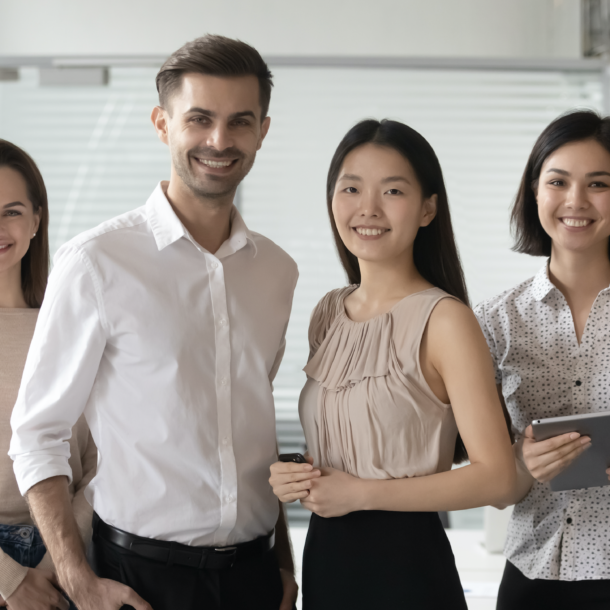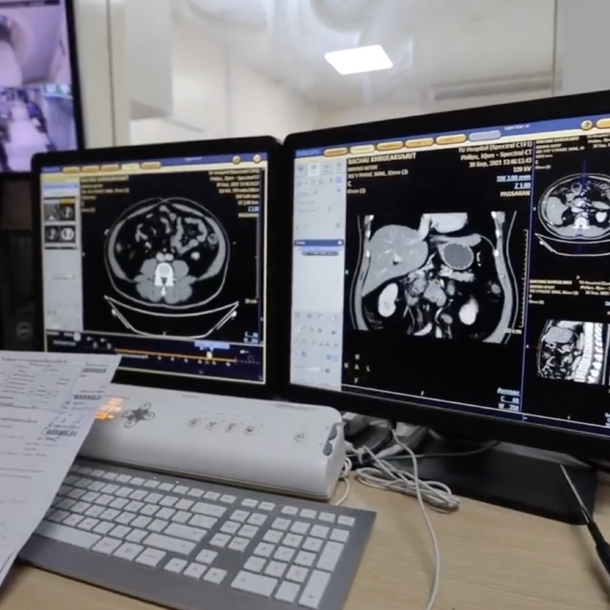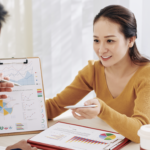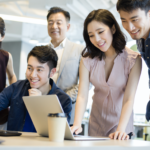
After watching this, your brain will not be the same – เป็นเรื่องราวของที่น่าสนใจจากการบรรยายของ Dr. Lara Boyd ใน TEDxVancouver เมื่อปี 2015 ซึ่งเป็นเรื่องราวเกี่ยวกับเรื่องของสมองกับการเรียนรู้ ทำให้หลายอย่างที่เราเคยคิด เคยเข้าใจ เกี่ยวกับเรื่องของสมอง อาจจะต้องเปลี่ยนไป หลังจากได้อ่านบทความนี้
คนเรามักตั้งคำถามเกี่ยวกับเรื่องของความสามารถของตัวเองและคนอื่นอยู่เสมอ การเปรียบเทียบเป็นสิ่งที่หลีกเลี่ยงไม่ได้ เพราะมันมีความแตกต่างให้เห็นอยู่ในทุกที่ ไม่ว่าจะเป็นการเปรียบกับคนที่ดีกว่า หรือกับคนที่แย่กว่า ซึ่งในการเปรียบเทียบเหล่านั้น เราก็ได้แต่ตั้งคำถามที่เหมือนๆ กันว่า “ทำไมเราถึงแตกต่างกัน?”
ในสังคมที่เราดำเนินชีวิตอยู่ประกอบไปด้วยคนหลากหลายประเภท จนมีมากมายหลายตัวอย่างเหลือเกินให้เราได้นึกถึง คำถามมากมายก็เกิดขึ้นในใจของเรา เช่น ทำไมบางคนถึงเก่งกีฬาประเภทนี้มาก? ทำไมบางคนถึงวาดรูปได้สวยมาก? ทำไมบางคนสามารถพูดได้หลายภาษา?
ทุกอย่างล้วนเป็นความสามารถที่จำเพาะเจาะจงซึ่งมาจากการเรียนรู้ที่แตกต่างของแต่ละคน ต่อให้เด็กกลุ่มนึงได้รับการสอนที่เหมือนกัน อยู่ในสภาพแวดล้อมที่เหมือนกัน ได้รับการเลี้ยงดูที่เหมือนกัน แต่สิ่งที่เด็กแต่ละคนสามารถรับไปได้ ก็ยังมีความแตกต่างกันอยู่ดี
“ทำไมบางคน ถึงสามารถเรียนรู้สิ่งต่างๆ ได้ง่ายกว่าคนอื่น?”
Dr. Lara Boyd นักวิจัยด้านสมอง จากมหาวิทยาลัยบริติชโคลัมเบีย กล่าวว่าสิ่งที่ทำให้เธอสามารถก้าวมาทำงานตรงนี้ และกลายเป็นนักวิจัยทางด้านสมองอย่างทุกวันนี้ได้ ก็เพราะคำถามเหล่านี้เป็นสิ่งที่ติดค้างอยู่ในใจเธอมาโดยตลอด อาทิเช่น ทำไมคนเราที่ได้รับทุกอย่างเหมือนกัน ถึงมีการเรียนรู้ที่ต่างกันได้ ถ้าเป็นแบบนี้มันไม่ดูใจร้ายไปหน่อยกับคนที่เรียนรู้ยาก และไม่ถนัดในการเรียนรู้อย่างคนอื่น
“สมองมีการเปลี่ยนแปลงรวดเร็วเท่ากับลมหายใจ”
ผลจากการศึกษาสมอง Dr. Lara ค้นพบว่าสิ่งที่เราเข้าใจกันมาตลอดในเรื่องของสมองนั้นไม่ถูกต้องและหลายอย่างที่เราเข้าใจกันก็คลาดเคลื่อน เพราะความจริงแล้ว สมองของคนเรานั้นไม่เคยหยุดทำงานอย่างที่เราเคยเข้าใจกันเลย ยกตัวอย่างเช่น เรามักคิดหลังจากผ่านช่วงวัยรุ่นไปแล้วว่า สมองของเราจะไม่สามารถพัฒนาหรือเปลี่ยนแปลงได้อีก ซึ่งความคิดนี้มันเป็นความเข้าใจที่ผิด หรือ เราชอบเข้าใจผิดกันว่าในตอนที่เรานอนหรือไม่ได้ทำอะไรเลยสมองของเราก็จะพักหรือไม่ทำงานเช่นกัน ซึ่งความเข้าใจแบบนี้มันห่างไกลจากข้อเท็จจริงไปเยอะมาก เพราะข้อเท็จจริงได้พิสูจน์แล้วว่าสมองเรานั้นทำงานตลอดเวลา และสมองก็เปลี่ยนแปลงตลอดเวลาด้วยเช่นกัน
“สิ่งที่น่าสนใจที่สุดที่ได้จากการค้นคว้าในเรื่องของสมองก็คือ ทุกครั้งที่เราได้เรียนรู้สิ่งใหม่ๆ สมองเราก็จะเปลี่ยนแปลงและพัฒนาไปด้วยเสมอ”
ด้วยเทคโนโลยีในปัจจุบัน ทำให้เราพบว่าสมองของเราจะเปลี่ยนแปลง และพัฒนาก็ต่อเมื่อเราได้เริ่มมีการเรียนรู้สิ่งใหม่ๆ เสมอ นี่คือกระบวนการที่เรียกว่า “การยืดหยุ่นและการปรับตัวของสมอง” เพราะที่ผ่านมาเรามักจะเข้าใจผิดว่าหลังจากที่อายุ 25 ปีเป็นต้นไปแล้ว สมองของเราจะเริ่มมีการเปลี่ยนแปลงในทางลบเท่านั้น เพราะเราเข้าใจผิดกันว่าเซลล์สมองจะลดลงเมื่อเรามีอายุที่เพิ่มมากขึ้น แต่จากการศึกษาและการวิจัยพบว่าอายุไม่เกี่ยวกับการเปลี่ยนแปลงของสมองเซลล์สมองเลย
“พฤติกรรมทุกอย่างของเราสามารถเปลี่ยนแปลงสมองได้”
ความจริงที่ได้จากการศึกษายังพบอีกว่าการเปลี่ยนแปลงของสมองไม่ว่าจะเป็นทางลบหรือทางบวก ไม่ได้ขึ้นอยู่กับอายุ แต่ขึ้นอยู่กับพฤติกรรมที่แต่ละคนเลือกทำ และพฤติกรรมทุกอย่างที่เราทำมันจะมีส่วนช่วยในการเปลี่ยนแปลงสมองของเราตลอดเวลาด้วยเช่นกัน
3 กระบวนการที่สามารถช่วยเปลี่ยนแปลงและพัฒนาสมองของเราเพื่อการเรียนรู้ที่ดีกว่าเดิม
1. สารเคมี : สมองของเรามีการแลกเปลี่ยนสัญญาณสารเคมีระหว่างสมอง การกระทำและการตอบสนองเพื่อการเรียนรู้เป็นสิ่งที่ช่วยเพิ่มความเข้มข้นของสารเคมีเหล่านี้ เพราะการเรียนรู้เหล่านี้เกิดขึ้นอย่างรวดเร็วและจบลง ความสามารถและการเคลื่อนไหวที่เรียนรู้มาจึงจะเก็บอยู่ในความทรงจำระยะสั้นเท่านั้น
2. การเปลี่ยนแปลงโครงสร้างสมอง : เพราะสารเคมีช่วยในการรับรู้และการเปลี่ยนแปลงของสมองจะมีผลได้ในระยะสั้นเท่านั้น ดังนั้นการเปลี่ยนแปลงในสมองจริงๆ จึงจำเป็นต้องอาศัยเรื่องของเวลาเข้ามาช่วย จึงจะส่งผลให้เกิดการเรียนรู้แบบระยะยาว
ยกตัวอย่างเช่น วันนี้เราได้เรียนรู้การเล่นเปียโน เรารู้สึกว่าเราสามารถเล่นเพลงเพลงนึงได้ดี และจับจังหวะได้ และสามารถทำมันได้อย่างสมบูรณ์แบบ แต่ปรากฏว่าในวันถัดไป เรามาเล่นมันอีกครั้ง เรากลับทำได้ไม่ดีเท่ากับวันแรก ทั้งๆ ที่เมื่อวานเราก็สามารถเล่นมันได้อย่างสมบูรณ์แบบแล้ว
เหตุการณ์แบบนี้เกิดขึ้นได้เพราะการเล่นเปียโนในวันแรกเป็นเพียงการเรียนรู้แบบระยะสั้นเท่านั้น ในวันถัดมา เราจึงต้องรื้อฟื้นมันขึ้นมาหน่อย หากต้องการให้มันการเป็นการเรียนรู้ระยะยาว เราต้องใช้เวลากับการเรียนรู้ ฝึกฝนเพื่อให้สมองได้จดจำได้ และเปลี่ยนความรู้นั้นให้เป็นความสามารถระยะยาวที่ติดตัวเราไปตลอดได้
3. การเปลี่ยนแปลงหน้าที่การทำงาน : ในสมองของเราจะแบ่งพื้นที่แต่ละส่วนสำหรับการเรียนรู้แต่ละประเภท เมื่อเราเรียนรู้สิ่งหนึ่ง สมองส่วนนั้นจะถูกกระตุ้น เมื่อถูกกระตุ้นบ่อยเข้าจากการเรียนรู้ซ้ำๆ สมองส่วนนั้นจะกลายเป็นพื้นที่ที่ไวต่อการกระตุ้นและง่ายต่อการเรียกใช้ งาน และนี่เองจะทำให้มันกลายเป็นความสามารถในระยะยาวของเรา
ความยืดหยุ่นและการเปลี่ยนแปลงของสมอง ส่วนใหญ่แล้วไม่ได้เกิดจากข้อใดข้อหนึ่งในสามข้อนี้ แต่มันมักจะเกิดขึ้นพร้อมๆ กัน สารเคมี โครงสร้าง และการเปลี่ยนการหน้าที่การทำงาน เมื่อทั้งหมดนี้เกิดขึ้นพร้อมกัน มันจะช่วยพัฒนาการเรียนรู้ของเราและเปลี่ยนแปลงสมองเราได้ตลอดเวลา
อะไรคือขีดความสามารถในการยืดหยุ่นและการเปลี่ยนแปลงของสมอง?
จากการศึกษา Dr. Lara พบว่าการรักษาสมองหลังจากเป็นโรคหลอดเลือดสมอง เป็นเรื่องที่ยากมาก แม้โรคนี้จะเป็นสาเหตุอันดับต้นๆ ที่ทำให้คนตายในสหรัฐอเมริกา แต่สิ่งที่วงการแพทย์ทำได้ไม่ใช่การรักษาอาการให้หาย แต่เป็นเพียงบรรเทาอาการให้เบาลงเท่านั้น
“โรคหลอดเลือดสมองเป็นสาเหตุของภาวะพิการระยะยาวในวัยผู้ใหญ่”
โรคหลอดเลือดสมอง หรือ Stroke เกิดขึ้นเมื่อหลอดเลือดในสมองมีการตีบตันหรือแตกอย่างเฉียบพลัน ทำให้การไหลเวียนของเลือดไปเลี้ยงสมองในส่วนนั้นหยุดชะงักลง ส่งผลให้เนื้อสมองถูกทำลาย เนื่องจากการขาดออกซิเจนและสารอาหาร
การรักษาโรคหลอดเลือดสมอง จึงกลายเป็นปัญหาที่ไม่มีทางแก้ ถึงแม้จะทำการศึกษาว่าสมองของเราเปลี่ยนแปลงได้ตลอดเวลา แต่เรากลับหาวิธีการรักษาผู้ป่วยที่เป็นโรคหลอดเลือดสมองให้หายจากการพิการระยะยาวไม่ได้ ในปัจจุบันนี้ มีคนอายุน้อยลงเรื่อยๆ ที่ป่วยเป็นโรคนี้และทำให้เกิดภาวะพิการระยะยาวมากขึ้น
“สิ่งที่ขับเคลื่อนการเปลี่ยนแปลงสมองได้ดีที่สุดก็คือพฤติกรรมของเรา”
สิ่งที่เห็นได้ชัดเจนจากการศึกษาพบว่าพฤติกรรมเป็นสิ่งที่ช่วยเปลี่ยนแปลงสมองได้ดีที่สุด แต่ต้องอาศัยปริมาณของพฤติกรรม และปริมาณของการฝึกซ้อมด้วยเช่นกัน เมื่อเรียนรู้แล้วต้องเกิดการทำซ้ำในสิ่งที่เรียนรู้ไปแล้ว จึงจะสามารถสร้างความเปลี่ยนแปลงให้กับสมองได้ และนี่เป็นสิ่งที่เรามักทำกันในผู้ป่วยโรคหลอดเลือดสมองที่เกิดภาวะพิการระยะยาว
“รูปแบบความสามารถในการยืดหยุ่นและการเปลี่ยนแปลงสมองของคนมีความหลากหลายมาก”
การศึกษาวิธีการบำบัดผู้ป่วยโรคหลอดเลือกสมอง มักมุ่งเน้นไปที่การลดความหลากหลายของการเปลี่ยนแปลงทางสมอง แต่ Dr. Lara กลับมองมุมกลับ และเลือกที่จะศึกษาให้เห็นความหลากหลายของการเปลี่ยนแปลงสมองแต่ละคนแทน เพราะสมองของแต่ละคนต่างกัน และมีรูปแบบการเรียนรู้ที่เฉพาะตัว
“เพราะโลกนี้ยังไม่มียา ที่กินแล้วสามารถเปลี่ยนแปลงสมองได้”
Dr. Lara เล่าว่าจากการศึกษาการบำบัดผู้โรคหลอดเลือดสมอง เธอพบว่าหนึ่งในสิ่งที่ช่วยเยียวยาได้ดี ก็คือการใช้พฤติกรรมในการรักษา ยิ่งยาก ยิ่งดิ้นรน จะยิ่งส่งผลต่อการเปลี่ยนแปลงของสมองได้ดีขึ้น เพราะไม่มียาใดบนโลกสามารถเปลี่ยนแปลงสมองของคนเราได้ ซึ่งก็เปรียบเสมือนกับการเรียนรู้ของคนเราเช่นกัน เราจะยิ่งจดจำการเรียนรู้สิ่งเหล่านั้นได้ดียิ่งขึ้นเมื่อเราต้องใช้ความอดทนและพยายามอย่างมากเพื่อเรียนรู้มัน
“ไม่มีรูปแบบการเรียนรู้ใดที่จะทำให้ทุกคนเข้าใจได้เท่ากัน”
นี่เป็นอีกเหตุผลนึงที่รูปแบบการศึกษาที่ไม่ว่าจะปฏิรูปกี่ครั้งก็ไม่สามารถได้ผลกับเด็กทุกคนอยู่ดี เด็กบางคนไปได้ดีกับการศึกษาแบบเก่า เด็กบางคนไปได้ดีกับการศึกษาแบบใหม่ มันเป็นเพราะสมองของพวกเขาแต่ละคนต่างกัน วิธีการเรียนรู้ที่จะได้ผลจึงแตกต่างกันออกไปด้วย
“รูปแบบการเรียนรู้ที่เฉพาะจงเจาะ จะส่งผลกับสมองได้ดีทั้งในฐานะผู้เรียนรู้และผู้ให้ความรู้”
เนื่องจากสมองของแต่ละคนมีความเฉพาะเจาะจงเหมือนกับหน้าตาและรูปร่างภายนอกที่แต่ละคนมีความแตกต่างกันไป ดังนั้นการเรียนรู้ที่ดีที่สุดจึงต้องมีความเฉพาะเพื่อให้เหมาะสมกับสมองของแต่ละคนเช่นกัน ยกตัวอย่างเช่น บางคนเรียนภาษาได้ดีโดยเริ่มจากการพูด บางคนอาจจะต้องเริ่มจากการอ่าน หรือ บางคนอาจจะเริ่มจากการฟัง เป็นต้น
“เราต้องค้นหาวิธีและสิ่งที่เราเรียนรู้ได้ดีที่สุด”
ในเมื่อพฤติกรรม คือคำตอบของการเปลี่ยนแปลงและพัฒนาสมอง เราจึงต้องหาวิธีการและสิ่งที่เราสามารถเรียนรู้ได้ดีที่สุด เพื่อเลือกพฤติกรรมในการเปลี่ยนแปลงสมองให้เกิดผลลัพธ์ที่มีประสิทธิภาพ และเมื่อเราเจอแล้ว ก็ต้องอย่าลืมที่จะฝึกฝน และลงมือทำพฤติกรรมเหล่านั้นซ้ำๆ เพื่อไม่ให้การเรียนรู้เหล่านั้นกลายเป็นเพียงแค่การเรียนรู้ระยะสั้น แต่เราต้องทำให้มันเป็นการเรียนรู้ระยะยาวที่จะกลายเป็นความสามารถที่จะติดตัวเราไปชั่วชีวิต
บทสรุป
หลังจากทุกคนอ่านบทความนี้จนจบ แอดมินอยากให้พวกเราเลิกตั้งคำถามว่าทำไมเราถึงไม่เก่งอย่างคนอื่น? หรือ ทำไมคนอื่นถึงได้เรียนรู้ได้ดีกว่าเรา? แต่ขอให้เปลี่ยนความคิดซะใหม่ว่าคนเหล่านั้นอาจจะเป็นคนที่โชคดี ได้เจอทางของตัวเองในการเรียนรู้ เราทุกคนสามารถประสบความสำเร็จในการเรียนได้เหมือนกัน เพียงแค่เราต้องหาทางที่ได้ผลกับตัวเอง และฝึกฝนมันอยู่เสมอ เพราะว่าสมองของทุกคนต่างก็มีความสามารถเฉพาะตัว และเพราะสิ่งนี้เองมันจึงพิเศษ เราควรภูมิใจในตัวเองและค้นหาทางของตัวเองให้เจอ
“ทุกสิ่งที่เราทำ ทุกสิ่งที่เราได้พบ ทุกสิ่งที่เราได้สัมผัส จะเปลี่ยนแปลงสมองของเรา”
After watching this, your brain will not be the same | Lara Boyd
บทความแนะนำ :
POMODORO Technique – บริหารจัดการเวลาดี ชีวิตเปลี่ยน





